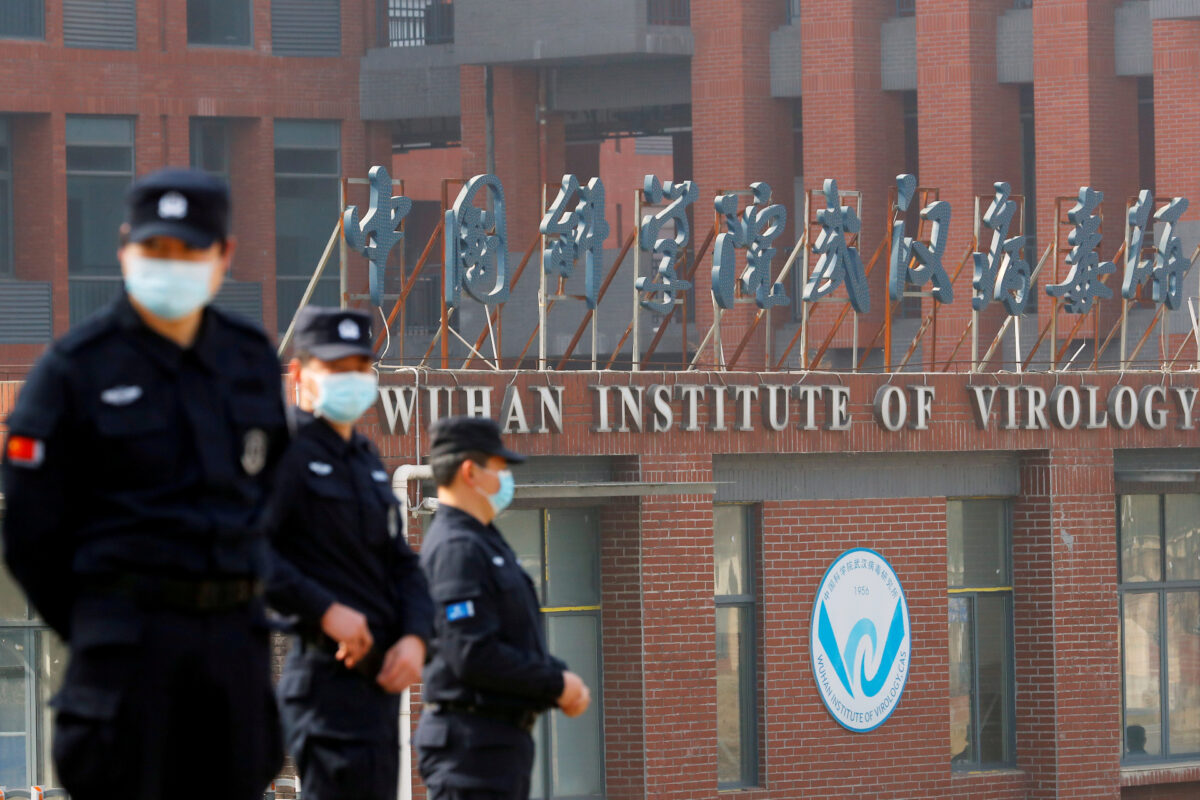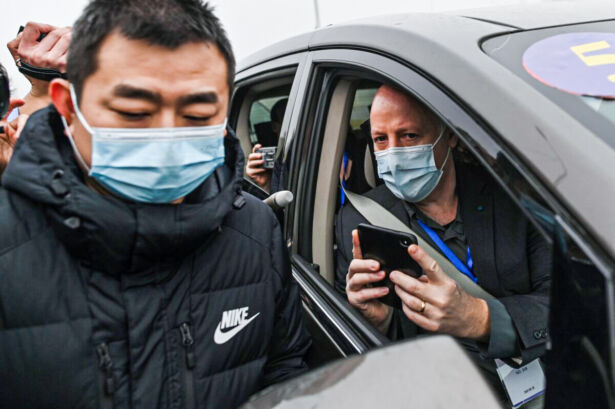National Institute of Health (NIH) officials have re-activated a previously terminated $576,290 federal grant to EcoHealth Alliance to study how outbreaks of deadly viruses like SARS, MERS, and now COVID-19 originate from wildlife and transfers to humans.
The move has prompted one Republican lawmaker to demand that NIH explain the decision she described as “absolutely reckless.”
“Most emerging human viruses come from wildlife, and coronaviruses in particular represent a significant threat to public health and biosecurity in the U.S. and globally, as was demonstrated by the SARS, MERS, and COVID-19 outbreaks,” is how the NIH describes the purpose of the renewed grant.
The renewed grant is to be administered through the NIH’s National Institute for Allergies and Infectious Diseases (NIAID), the research arm headed for several decades by the recently retired Dr. Anthony Fauci. The description was made public by Rep. Morgan Griffith (R-Va.), who is chairman of the House Energy and Commerce Committee’s Oversight and Investigations Subcommittee.
“This project seeks to understand what factors allow bat-origin coronaviruses, including close relatives to SARS, to jump into the human population by studying their evolutionary diversity, the patterns of spillover in people that live in high-risk communities, and analyzing characteristics of bat coronaviruses that could allow them to emerge,” the grant description continues.
EcoHealth issued a celebratory statement declaring that the NIH decision “reflects a reversal of the previous termination and suspension of a [grant] awarded in 2019, but halted in April 2020 due to concerns about continuing collaborative laboratory research with the Wuhan Institute of Virology (WIH).”
Several U.S. agencies and independent scientists have concluded that a leak from within the WIV lab is the most likely source of the COVID-19 pandemic that, to date, has killed more than 1.1 million Americans since January 2020 and in excess of six million people world-wide.

EcoHealth defenders, including Fauci, have argued that the most likely origin of the COVID-19 virus is through a transference from bats to humans via sale of the creatures’ meat in a market near WIH.
The WIH lab has been the scene of extensive gain-of-function research by Chinese scientists, much of it funded in whole or part prior to the pandemic by NIH grants through EcoHealth. The NIH has awarded seven grants totaling more than $4.1 million to EcoHealth to study various aspects of SARS, MERS, and other coronavirus diseases.

EcoHealth said in its statement that its agreement with NIH requires researchers to conduct all of their studies outside of China and in conjunction with a Singapore-based health facility, as well as other measures designed to address concerns about the lack of proper safety procedures at WIH and its connection with the Chinese military.
“The specific aims have been revised in consultation with NIAID and NIH staff, and respond to any ongoing concerns by removing all on-the-ground work in China and all recombinant virus culture or infection experiments. We have also agreed to all additional oversight mechanisms applied by NIH,” EcoHealth said.
“The renewed work will involve collaboration only between EcoHealth Alliance and the Duke-National University of Singapore Medical School, with the following specific aims: (1) identifying high-spillover risk bat SARSr-CoV sequences in southern China and assessing drivers of recombination; (2) conducting community- and clinic-based surveillance of archived pre-COVID-19 human samples to identify SARSr-CoV spillover events, routes of exposure, and potential public health consequences; and (3) characterizing SARSr-CoV binding, ability to evade therapeutics/vaccines, and identifying spillover hotspots,” the EcoHealth statement continued.

Those revisions may not satisfy congressional critics of NIH’s decade of funding for such research by EcoHealth.
“It’s absolutely reckless that the NIH has renewed a grant for EcoHealth Alliance given their negligence and the breach of their contract with the NIH on the coronavirus research done at the Wuhan Institute of Virology. It is now believed likely that COVID-19 was the result of a lab incident at the Wuhan Institute,” Griffith said in a May 8 statement.
“From my observations, EcoHealth Alliance has not been contrite about their failures. And even worse, they have refused to cooperate with Congress in our attempts to get information about the research they were doing at the Wuhan Institute,” Griffith said.
“Until they can demonstrate a willingness to work with Congress to resolve outstanding questions and fulfill all of the terms of their federal contracts, paid for with American taxpayer dollars, all funding should remain suspended, and no new contracts should be awarded,” he said.
Griffith, alongside House Energy and Commerce Committee Chairman Cathy McMorris Rodgers (R-Wash.) and Subcommittee on Health Chairman Rep. Brett Guthrie (R-Ky.), pushed NIH in an April 25, 2022, letter to Acting Director Lawrence Tabak to investigate EcoHealth President Peter Daszak for multiple alleged failures to comply with federal grant regulations and stipulations.

“Our review of EcoHealth Alliance’s reports about its humanized mice experiments at the Wuhan Institute of Virology (WIV) using funds from the National Institutes of Health (NIH) shows pervasive discrepancies, inconsistencies, and omissions in its progress reports and renewal application that raise serious questions about scientific and ethical misconduct, violations of NIH policies and regulations, and possible false statements and fraud.”
A NIH spokesman did not respond to The Epoch Times’ request for comment.
From The Epoch Times
